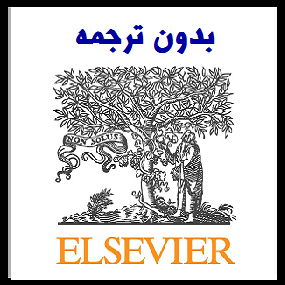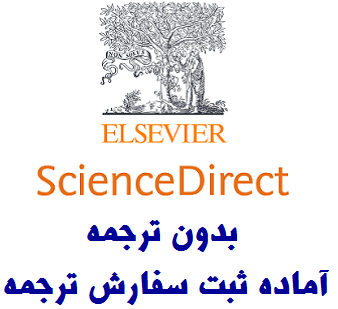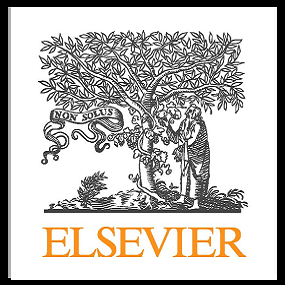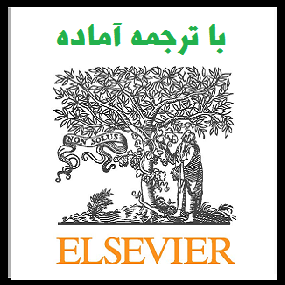دانلود مقالات 2017 با ترجمهدانلود مقالات الزویر با ترجمهسالمقالات انگلیسی روابط عمومی با ترجمهمقالات انگلیسی روانشناسی با ترجمهمقالات انگلیسی روانشناسی عمومی با ترجمهمقالات انگلیسی علوم ارتباطات اجتماعی با ترجمهناشر
مقاله انگلیسی ارتباط بین بازخورد رسانه های اجتماعی مثبت و کاهش اعتماد به نفس (2017 الزویر)


| عنوان فارسی مقاله | چند نفر من را لایک کردند؟ ارتباط بین بازخورد رسانه های اجتماعی مثبت و کاهش اعتماد به نفس |
| عنوان انگلیسی مقاله | How many likes did I get?: Purpose moderates links between positive social media feedback and self-esteem |
| نمونه مقاله انگلیسی | Facebook, the world’s largest online social network, allows users to “like” the content they view with the click of a button. The simplicity of liking posted material has made doing so extraordinarily popular, with nearly 4.5 billion likes generated daily and half of all users liking at least one post they view every day (Pew Research Center, 2014). But what impact does this proliferation of likes have on those receiving them? On one hand, accumulating evidence suggests a positive influence: receiving affirmation on content posted virtually corresponds positively with self-esteem and subjective well-being and negatively with loneliness (Bazarova, Choi, Schwanda Sosik, Cosley, & Whitlock, 2015; Burke, Marlow, & Lento, 2010; Oh, Ozkaya, & LaRose, 2014; Valkenburg, Peter, & Schouten, 2006). On the other hand, relying on affirmation from others in order to feel good about oneself may signal contingent self-worth, which can undermine well-being over time (Kernis, Paradise, Whitaker, Wheatman, & Goldman, 2000). Adjudicating between these possibilities is important as seeking attention and acknowledgement from others are reported as primary drivers of Facebook use (Sung, Lee, Kim, & Choi, 2016; Stefanone, Lackaff, & Rosen, 2011). A central aim of the current research was to examine the extent to which virtual likes influence how individuals feel about themselves. We based our examination on sociometer theory (Leary & Baumeister, 2000; Leary & Downs, 1995), which holds that self-esteem is calibrated to cues of inclusion or rejection within the social environment. From this perspective, how individuals feel about themselves is a dynamic and self-regulatory gauge of one’s relational value. Several experiments and field studies confirm that self-esteem is elevated when individuals are (or imagine being) included, accepted, or deemed popular by others (Denissen, Penke, Schmitt, & van Aken, 2008; Leary, Tambor, Terdal, & Downs, 1995; Reitz, Motti-Stefanidi, & Asendorpf, 2015). Notably, having Facebook friends who are more responsive can satisfy psychological needs above and beyond the number of Facebook friends one has (Greitemeyer, Mügge, & Bollermann, 2014). Because receiving positive feedback can signal acceptance within one’s social environment, we predicted that self-esteem would increase as a function of the number of likes one received on their personal photographs. It should be noted, however, the extent to which self-esteem relies on perceptions of one’s relational value can be limited by other factors. For example, among individuals driven by strong personal goals and motivations, social inclusion is a much weaker predictor of self-esteem (Guay, Delisle, & Fernet, 2008). |
| سال انتشار | 2017 |
| ناشر | الزویر |
| مجله | مجله روانشناسی اجتماعی تجربی – Journal of Experimental Social Psychology |
| کلمات کلیدی | هدف در زندگی، اعتماد به نفس، رسانه های اجتماعی، بازخورد |
| کلمات کلیدی انگلیسی |
Purpose in life, Self-esteem, Social media, Feedback |
| صفحات مقاله انگلیسی | 5 |
| مناسب برای رشته | روانشناسی، علوم ارتباطات اجتماعی |
| مناسب برای گرایش | روانشناسی عمومی، روابط عمومی |
| توضحیات | این مقاله انگلیسی جدید بوده و تا کنون ترجمه نشده است. جهت ثبت سفارش ترجمه از لینکهای زیر استفاده نمایید. |
| دانلود مقاله انگلیسی | ○ دانلود رایگان مقاله انگلیسی با فرمت pdf (کلیک کنید) |
| سفارش ترجمه فارسی | ○ سفارش انجام ترجمه و تایپ این مقاله (کلیک کنید) |
| سایر مقالات این رشته | ○ مشاهده سایر مقالات رشته روانشناسی (کلیک کنید) |



